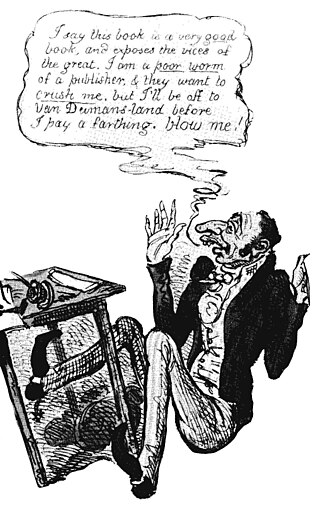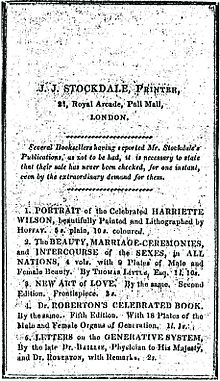
Hansard is the traditional name of the transcripts of parliamentary debates in Britain and many Commonwealth countries. It is named after Thomas Curson Hansard (1776–1833), a London printer and publisher, who was the first official printer to the Parliament at Westminster.
Capital punishment in the United Kingdom predates the formation of the UK, having been used within the British Isles from ancient times until the second half of the 20th century. The last executions in the United Kingdom were by hanging, and took place in 1964; capital punishment for murder was suspended in 1965 and finally abolished in 1969. Although unused, the death penalty remained a legally defined punishment for certain offences such as treason until it was completely abolished in 1998; the last execution for treason took place in 1946. In 2004 the 13th Protocol to the European Convention on Human Rights became binding on the United Kingdom; it prohibits the restoration of the death penalty as long as the UK is a party to the convention.

John Campbell, 1st Baron Campbell, PC, QC, FRSE was a British Liberal politician, lawyer and man of letters.

Thomas Denman, 1st Baron Denman, was an English lawyer, judge and politician. He served as Lord Chief Justice between 1832 and 1850.
The privilege of peerage is the body of special privileges belonging to members of the British peerage. It is distinct from parliamentary privilege, which applies only to those peers serving in the House of Lords and the members of the House of Commons, while Parliament is in session and forty days before and after a parliamentary session.

Stannary law is the body of English law that governs tin mining in Devon and Cornwall; although no longer of much practical relevance, the stannary law remains part of the law of the United Kingdom and is arguably the oldest law incorporated into the English legal system.
Parliamentary privilege is a legal immunity enjoyed by members of certain legislatures, in which legislators are granted protection against civil or criminal liability for actions done or statements made in the course of their legislative duties. It is common in countries whose constitutions are based on the Westminster system.

The Obscene Publications Act 1959 is an Act of Parliament of the United Kingdom Parliament that significantly reformed the law related to obscenity in England and Wales. Prior to the passage of the Act, the law on publishing obscene materials was governed by the common law case of R v Hicklin, which had no exceptions for artistic merit or the public good. During the 1950s, the Society of Authors formed a committee to recommend reform of the existing law, submitting a draft bill to the Home Office in February 1955. After several failed attempts to push a bill through Parliament, a committee finally succeeded in creating a viable bill, which was introduced to Parliament by Roy Jenkins and given the Royal Assent on 29 July 1959, coming into force on 29 August 1959 as the Obscene Publications Act 1959. With the committee consisting of both censors and reformers, the actual reform of the law was limited, with several extensions to police powers included in the final version.

Thomas Curson Hansard was an English pressman, son of the printer Luke Hansard.

The Sexual Offences Act 1967 is an Act of Parliament in the United Kingdom. It legalised homosexual acts in England and Wales, on the condition that they were consensual, in private and between two men who had attained the age of 21. The law was extended to Scotland by the Criminal Justice (Scotland) Act 1980 and to Northern Ireland by the Homosexual Offences Order 1982.

Pepper v Hart [1992] UKHL 3, is a landmark decision of the House of Lords on the use of legislative history in statutory interpretation. The court established the principle that when primary legislation is ambiguous then, in certain circumstances, the court may refer to statements made in the House of Commons or House of Lords in an attempt to interpret the meaning of the legislation. Before this ruling, such an action would have been seen as a breach of parliamentary privilege.
In countries with a parliamentary system of government, contempt of Parliament is the offence of obstructing the legislature in the carrying out of its functions, or of hindering any legislator in the performance of his duties.

The Parliamentary Papers Act 1840 is an Act of the Parliament of the United Kingdom. The Act was passed in response to the case of Stockdale v Hansard where it was held that the House of Commons enjoyed no privilege as to publications under its authority circulated beyond Members of Parliament.

John Joseph Stockdale was an English publisher and editor with something of a reputation as a pornographer. He sought to blackmail a number of public figures over the memoirs of society courtesan Harriette Wilson, drawing the notorious retort from the Duke of Wellington, Publish and be damned! He also famously sued the parliamentary reporter Hansard over an allegation that he had published an indecent book and became involved in an important constitutional clash between parliament and the courts that ultimately brought about a change in the law.

John Roberton was a Scottish physician and social reformer. A radical and fringe figure in the medical profession, he is best remembered for advocating the founding of a medical police to promote health and social welfare and for authoring a book that became the centre of a notorious legal case.

R v Penguin Books Ltd was the public prosecution in the United Kingdom of Penguin Books under the Obscene Publications Act 1959 for the publication of D. H. Lawrence's 1928 novel Lady Chatterley's Lover. The trial took place over six days, in No 1 court of the Old Bailey, between 20 October and 2 November 1960 with Mervyn Griffith-Jones prosecuting, Gerald Gardiner counsel for the defence and Laurence Byrne presiding. The trial was a test case of the defence of public good provision under section 4 of the Act which was defined as a work "in the interests of science, literature, art or learning, or of other objects of general concern".

Parliamentary privilege in the United Kingdom is a legal immunity enjoyed by members of the House of Commons and House of Lords designed to ensure that parliamentarians are able to carry out their duties free from interference. The privileges are freedom of speech, freedom from arrest on civil matters, freedom of access to the sovereign, and that 'the most favourable construction should be placed on all the Houses' proceedings'. Fair and accurate reporting of the proceedings of parliament is also protected by parliamentary privilege.
In parliamentary procedure, especially the Westminster system, a document is laid before the house or Laid on the Table of the House when it is formally recognised as having been made available for members of a deliberative assembly to read. Documents produced by official bodies or in response to orders from parliament are required to be laid before the house. These documents inform members in their deliberations.

The Four Courts Marshalsea was a prison in Dublin, Ireland until 1874. The keeper of the prison was the Marshal of the Four Courts, a role filled after 1546 by the Constable of Dublin Castle.

The Tribunals of Inquiry (Evidence) Act 1921 was an Act of Parliament in the United Kingdom, now repealed, which set out the powers and functions of certain Tribunals of Inquiry along with the procedures for the taking of evidence. The Act did not give blanket powers for a tribunal of inquiry to be set up ad hoc. For a tribunal to be established under the Act, the matter in question would need to be one of urgent public significance; and would need to be authorised by the Secretary of State. If these prerequisites were met, such an inquiry would be established with judicial powers—in the same way as the High Court or the Court of Session in Scotland.













